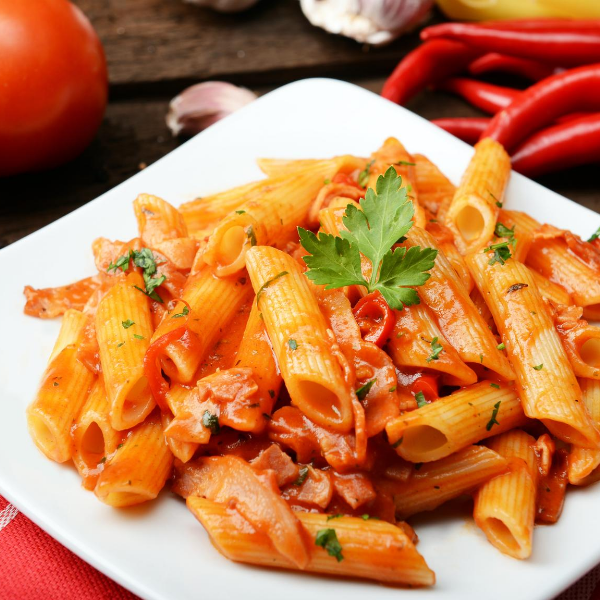The best diet to follow for good health probably won’t surprise you: low in fat and calories; rich in fruits, vegetables, and whole grains; and focused on “real” foods rather than processed ones. While these same guidelines apply to men who have prostate cancer, your diet and how you prepare food may be even more important to your health.
Here are some tips on how to plan prostate-healthy meals.
1. Tomatoes
Tomatoes contain a powerful antioxidant called lycopene. It may help prevent prostate cancer as well as reduce tumor growth among people with prostate cancer. Further research is needed to confirm a benefit, but in a review of 24 studies, researchers suggested that males who ate more tomatoes were less likely to develop prostate cancer. But how exactly do tomatoes help? Lycopene may decrease cell damage and slow cancer cell production. It is an antioxidant, meaning it protects cells from damage. Because lycopene is tightly bound to cell walls, the body has trouble extracting it from raw tomatoes. Cooked or puréed tomato products may be better options, like the following products:
- tomato paste
- spaghetti sauce
- sun-dried tomatoes
- tomato juice

How to add more tomatoes to your diet
Eating Italian-style foods, like pizza and pasta, may help you add more tomato-based foods into your diet. Focus on Italian-style foods that use a tomato base. These include spaghetti Bolognese or a caprese salad. In the summer months, you can buy fresh, local tomatoes to add into sandwiches and chop into salads. Drinking plain tomato juice each morning is another good option. Just make sure to pick a low sodium variety.
2. Broccoli
Broccoli is a vegetable that contains many complex compounds that may help protect some people from cancer. Some studies suggest there’s a link between the amount of cruciferous vegetables you eat, a group that includes broccoli, and a lower prostate cancer risk. Other cruciferous vegetables include cauliflower, cabbage, Brussels sprouts, and kale.
How to add more broccoli to your diet
You can add broccoli to stir-fries, soups, and salads, or simply eat it raw or cooked with some dip. If you worry about fresh vegetables going bad, consider buying frozen broccoli so that you can cook it whenever you have the time.
3. Green tea
People have been using green tea for its health benefits for thousands of years. Researchers have conducted many studies looking at its effects on cancer. Evidence suggests that special compounds in green tea may reduce the risk of prostate cancer through influencing tumor growth, cell death, and hormone signaling.
How to add more green tea to your diet
If you like the taste of green tea, start by drinking a cup each morning in place of your regular coffee. If you don’t drink caffeine, try a decaffeinated version. If you don’t like warm tea, try cooling it in your refrigerator and adding ice for a refreshing beverage. If you aren’t a fan of the taste, try using cooled green tea as the liquid in homemade smoothies, or adding green tea powder.
4. Pomegranate juice
Like green tea, pomegranates are a rich source of antioxidants. Pomegranate juice has a reputation as a “miracle fruit” due to its high levels of antioxidants. Antioxidants help prevent chronic diseases related to oxidative stress. Studies have found evidence that pomegranate juice and extract inhibit the production of some prostate cancer cells in animal and cell studies, though more research is needed in humans
How to add more pomegranate juice to your diet
You can buy pomegranate juice at most grocery stores. If drinking the juice plain is too intense, consider diluting it with plain water or adding some sparkling water. You can also add pomegranate seeds to homemade salad dressing to sweeten up your favorite salad.
By adding these healthy, prostate-friendly foods to your diet, you may be able to reduce your risk of prostate problems. Other than that, taking dietary supplements can help support your health better.


